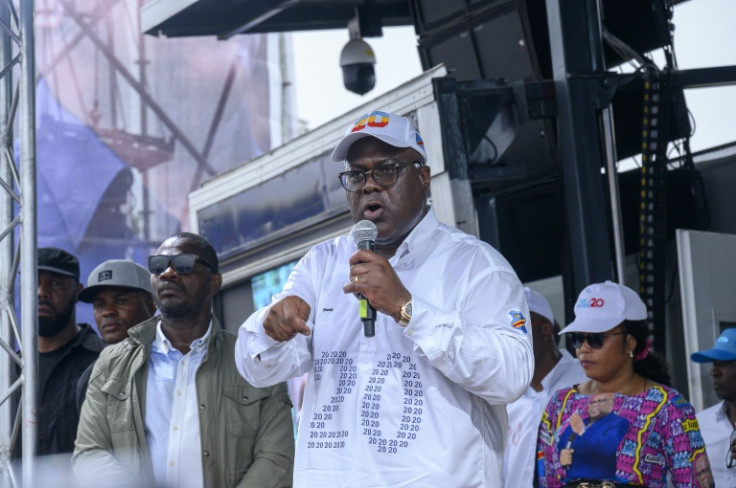Tshisekedi: DR Congo's Leader For Another Five Years

DR Congo's President Felix Tshisekedi has won a second term in office after elections described as chaotic, and is now set to cement his authority in the impoverished central African nation.
In pugnacious rallies ahead of the December 20 vote, the 60-year-old, sporting white shirts and baseball caps, urged voters to let him "consolidate his gains," claiming progress on development and security.
He won out against 25 other candidates in the single-round presidential vote, bringing home about 73 percent of the ballots cast, according to provisional results announced Sunday by the country's electoral commission.
The scale of the president's victory is crushing -- and the Democratic Republic of Congo's political opposition has made allegations that voting irregularities explain the huge margin over his rivals.
Voting had been extended over several days due to bureaucratic mayhem, leading opposition figures to call for a rerun after what they termed "total chaos" and a "sham election".
Known by the nickname "Fatshi" -- an abbreviation of his name -- Tshisekedi has led the DRC through the Covid pandemic and the ongoing M23 rebellion in the mineral-rich east.
The success of his first term in office is often viewed as mixed: The economy has grown but inflation is soaring and high unemployment remains the norm.
During his re-election campaign, Tshisekedi trumpeted his elimination of primary-school fees and promised to create millions of new jobs.
He also regularly accused opposition figures of working for foreign interests.
Tshisekedi's father, Etienne, was the leading opponent of the former dictator Mobutu Sese Seko.
An ethnic Luba from Congo's Kasai region, Felix followed his father there at the age of 19, when the latter was banished from the capital.
Three years later, Mobutu allowed Felix, his mother and siblings to go into exile in Belgium.
He then began to climb the ranks of his father's UDPS party and in 2011 won a parliamentary seat in the Kasaian city of Mbuji-Mayi.
But Tshisekedi refused to take up the seat on instructions from his father, who considered then-president Joseph Kabila a dictator.
Etienne Tshisekedi died in 2017, a year before his son ran for president in an election that was fiercely disputed.
Once in power, Felix Tshisekedi began to nurture his public image and travel abroad extensively, in contrast to his reclusive predecessor.
He also broke off a coalition deal with Kabila, striking out on his own.
The president, who is married and has children, is known to be soft-spoken and a good listener.
An official who has worked closely with Tshisekedi and requested anonymity also described him as respectful, adding that "I was struck by his humility".
Tshisekedi also has a reputation as a late-rising reveller, who runs the country by night.
Presidential addresses made around midnight are common, and several officials have told AFP that top government meetings are often held late at night.
The DRC is one of the poorest nations in the world and riddled with corruption. Combating it was highlighted as a key goal of Tshisekedi's presidency.
But his record is patchy, and many analysts view him as prioritising his political position.
Tshisekedi came to office promising progress on development, but life remains tough for most Congolese.
Despite economic growth on paper, inflation reached more than 20 percent in October compared to last year, according to the International Monetary Fund.
The east of the country is also mired in bloody conflict, with the M23 rebel offensive launched in late 2021 displacing over a million people.
Progress on consolidating DRC's fragile democracy is also stalling -- Authorities have jailed opposition politicians as well as a prominent journalist.
© Copyright AFP {{Year}}. All rights reserved.





















